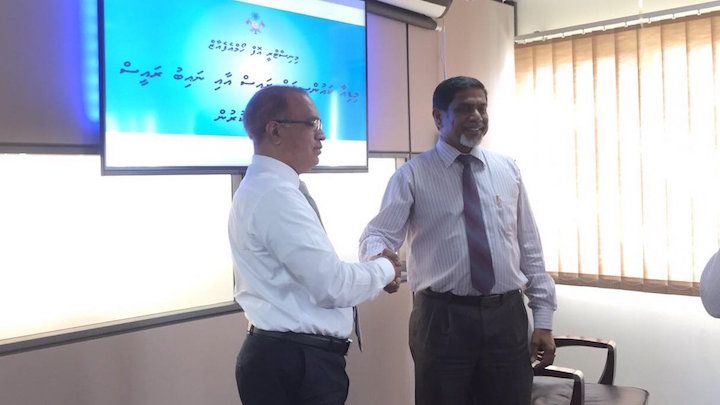President’s office denies filing defamation complaints
Despite the denial, the Maldives Media Council has asked six Raajje TV journalists and VFP’s editor to respond to several complaints filed by the president’s office about articles deemed defamatory towards First Lady Fathmath Ibrahim.

22 May 2017, 09:00
The president’s office has denied filing defamation complaints with the Maldives Media Council against several media outlets.
“No complaint has been filed with any institution in the president’s office’s name against journalists or media outlets. The MMC has been informed of this,” Ibrahim Muaz Ali, the president’s office spokesman, tweeted Monday afternoon.
The tweet followed reports about the president’s office asking the regulator to investigate articles published by Raajje TV’s website, Mihaaru, VFP, Vaguthu and the Maldives Independent.
Despite Muaz’s insistence to the contrary, the council told VFP’s editor Ismail Rasheed on Monday to respond to several complaints about five articles deemed defamatory towards First Lady Fathmath Ibrahim. According to VFP, the articles concerned the distribution of medicine and influenza vaccine by the first lady’s office during a flu outbreak in March.
Become a member
Get full access to our archive and personalise your experience.
Already a member?
Discussion
No comments yet. Be the first to share your thoughts!
No comments yet. Be the first to join the conversation!
Join the Conversation
Sign in to share your thoughts under an alias and take part in the discussion. Independent journalism thrives on open, respectful debate — your voice matters.




